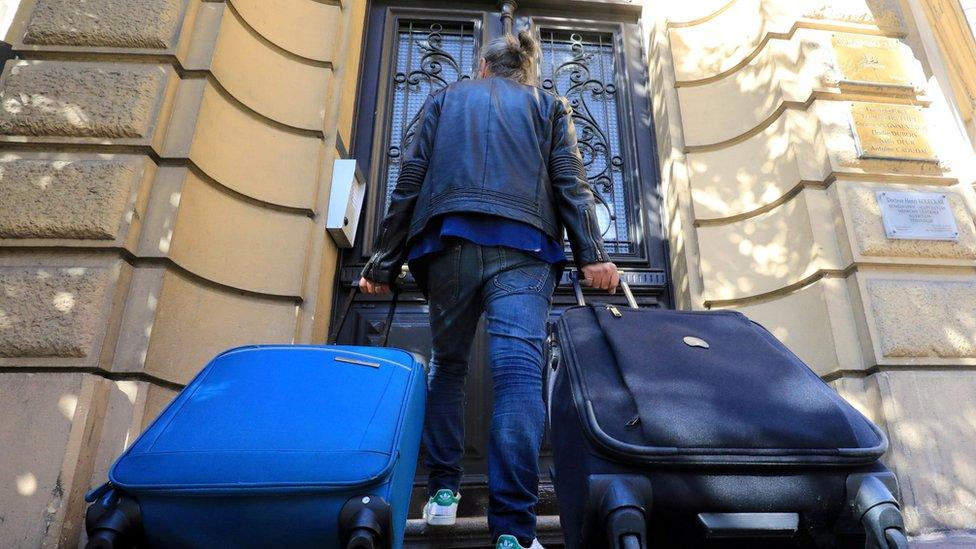Public consultation launched on Scottish tourist tax plans
- Published

The Bill would allow councils to tax overnight accommodation such as hotels and B&Bs
A public consultation has been launched into proposals for a "tourist tax" for people holidaying in Scotland.
If passed, the Visitor Levy (Scotland) Bill would allow councils to tax accommodation such as hotels, B&Bs and holiday lets.
The charge would based on a percentage of the accommodation cost, with each rate left to individual councils.
The consultation is aimed at individuals, businesses, community groups and tourism organisations.
The Bill was introduced last month by the Scottish Parliament's Local Government, Housing and Planning Committee.
Committee convener Ariane Burgess MSP said: "The Bill provides a framework for local authorities to decide how money raised should be spent within local communities, how flexible they can be with where and when the levy would apply, and whether certain exemptions should apply"
Key principles for the tax:
Fair to industry, residents and tourists
Simple to understand and run
Administratively efficient and difficult to avoid
To raise additional income and be transparently invested
Must have transparent governance and accountability
After the consultation period, which runs until September 1, a report will be published and MSPs will decide whether the Bill should proceed.
A Scottish Parliament spokesperson said: "As individuals may be paying the levy, or interested in how it is spent locally, we want to hear from people all over Scotland including places with high levels of tourism."


A so-called tourist tax might give some councils a significant new source of money. But it is not without its risks.
Critics fear it could be a burden on business or deter visitors - perhaps displacing them to cheaper accommodation in a neighbouring council area.
Inevitably, it could be a source of money to a council in an area like Edinburgh or Highland where tourism is an important part of the economy but might be far less important to some other councils.
The initial argument for a visitor levy came as part of a call to give councils a wider range of financial powers to try to reduce their dependence on the Scottish government and the council tax.
Another new financial power under separate consideration involves giving councils the power to charge double tax on second homes and empty properties.